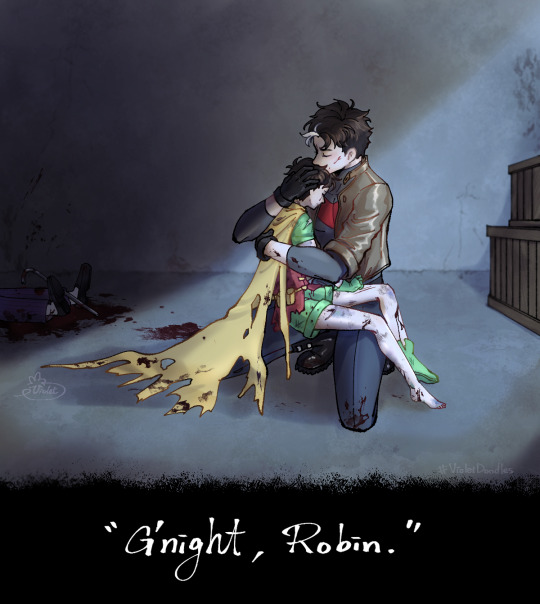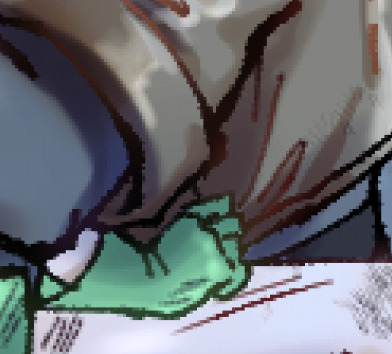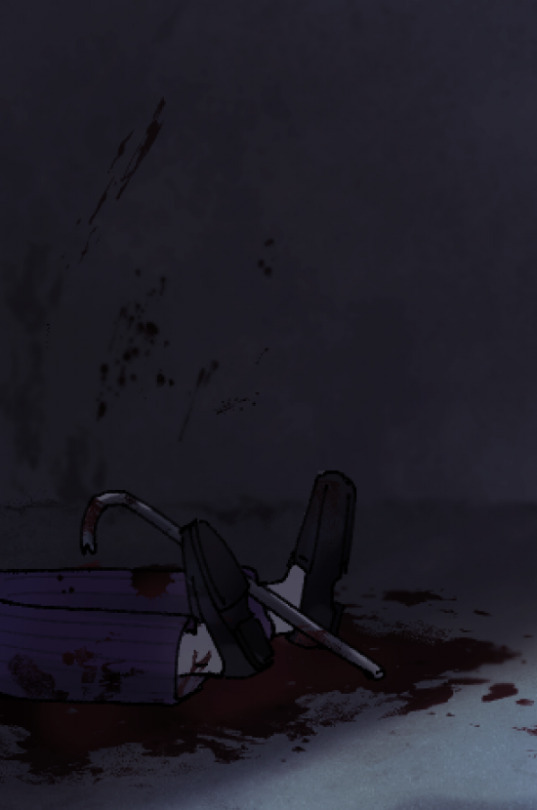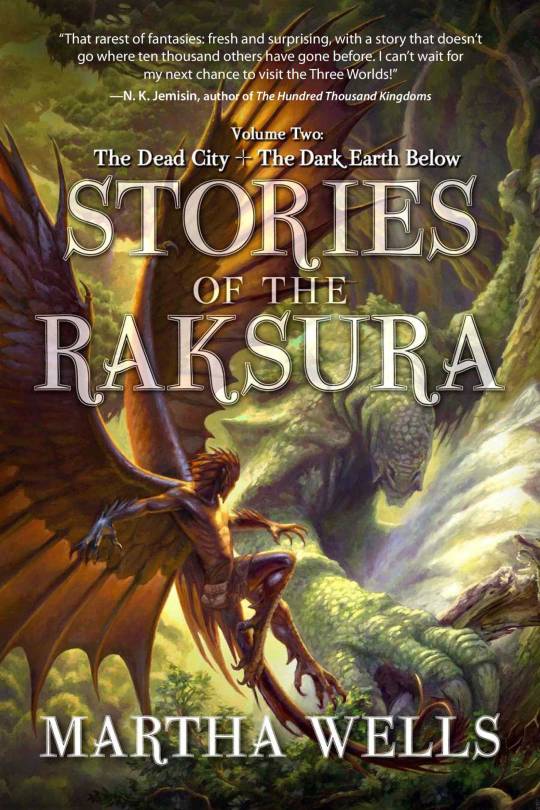#that specific catharsis of saving you younger self.
Explore tagged Tumblr posts
Text

One day you'll grow up big and strong.



#that specific catharsis of saving you younger self.#you were young. you were scared. it was not your fault.#happy death day#tw: blood#jason todd#red hood#robin jason todd#violetdoodles#dc fanart#something something#saving your child self#to be the protector your past self wished he had
627 notes
·
View notes
Text
TerraMythos 2021 Reading Challenge - Book 23 of 26

Title: Stories of the Raksura, Volume Two (2015)
Author: Martha Wells
Genre/Tags: Fantasy, Adventure, Short Story Collection, Third-Person, LGBT Protagonist, Female Protagonist
Rating: 8/10 (note: this is an average)
Date Began: 8/30/2021
Date Finished: 9/8/2021
Stories of the Raksura, Volume Two is the second of two short story/novella collections that take place in the Books of the Raksura universe. As before, I recommend reading the original trilogy if you’re interested in this series— otherwise you will be pretty confused. You can check out my review of The Cloud Roads here.
Of the two novellas and three short stories in this volume, my favorites were “The Dead City” and “The Dark Earth Below”, both of which got a 9/10 from me.
Individual ratings, content warnings, and minor series spoilers below the cut.
Content warnings for the book: Suicidal ideation, graphic violence, gore, death, parental disownment, childbirth.
#1 - The Dead City (9/10)
Fleeing from the ruins of Saraseil, Moon attempts to process his trauma. After wandering aimlessly, he stumbles upon a small village troubled by a rash of strange disappearances. Moon resolves to uncover a mysterious threat and save the locals— but he must hide his true identity lest they turn on him.
He was tired of looking at dead groundlings, tired of feeling sorry for them. The Fell had hunted them through the streets of Saraseil, dug through the walls of their houses. There was a raw lump of emotion in his chest, boiling and expanding until it felt as if it was going to burst through his scales.
He wanted to make somebody else feel sorry.
This story really clicked with me; it’s more emotionally intense than many stories in this series. It’s also one of the few glimpses we get of Moon before discovering the Raksura, and the difference between this painfully lonely version of him and the version we get throughout the series is quite striking. Things gets better, Moon, I swear! The prose is also on point and very entertaining to read. I found the monsters in this story pretty creepy; basically a Three Worlds take on zombies.
Even so, I had trouble understanding why I liked this story so much, but then I realized— it’s a freaking Murderbot plot. Hyper competent, emotionally stunted loner stumbles upon a bunch of strangers in need, and decides they must help said strangers without being able to articulate why… all while hiding their secret identity. Cue a bunch of badass action scenes spliced together with emotionally charged self-reflection. This is in no way a criticism, because I LOVE that plot, and it’s kind of funny to see a Murderbot prototype in the Raksura universe.
#2 - Mimesis (8/10)
Jade is on a diplomatic mission with a small contingent of warriors. When one of the younger ones disappears, she searches the nearby forest to find him. But she soon discovers much more than she bargained for.
Of course, the lesson might be that instead of the court losing one warrior it was about to lose a warrior and a sister queen, just because Jade didn’t want to look like a coward. And maybe a predator’s burrow wasn’t a good place for an inner debate about responsibility and leadership.
This is a very short story, about the length of a standard chapter. But I did enjoy it; it’s nice to have a story from Jade’s POV. The monster here is maybe the creepiest one in the series? I like how its whole deal ties into the title. Other than that, not a whole lot to say about this one.
#3 - Trading Lesson (7/10)
A group of wandering traders visit the Indigo Cloud colony tree. Moon notices one attempting to swindle a Raksura, and promptly puts a stop to it.
Moon’s attempt to appear innocent and only mildly interested was clearly failing, so he said, “I like amber fine. I don’t like traders that take advantage of people.” Iglen wasn’t obligated to play fairly. But Moon wasn’t obligated to let him get away with it, either.
If “Mimesis” seemed short, this one is really only a few pages long. It’s basically a slice-of-life scene at Indigo Cloud. It’s some fun bonus content if you want to see a fragment of daily life among the Raksura, but not much else.
#4 - The Almost Last Voyage of the Wind-Ship Escarpment (8/10)
Jai is the captain of a small wind-ship with a tight-knit crew. Their newest member is a young man named Flaren, recently disowned and left for dead by his family. Jai feels an especially strong kinship with him— but when Flaren’s father offers her crew a job to deliver ransom in an active hostage situation, Flaren sees it as an opportunity to regain favor with his family.
Not only would they be rescuing people who were badly in need of rescuing, stuck-up Issilan nobles though they were, but the rest of the payment Canon Hain had promised was so large they couldn’t afford to pass it up. “The pirates want their ransom, we want their hostages and our payment for freeing them. If it goes well, everyone gets what they want.”
Everyone nodded, reassured, and Jai felt the tension ease. Then Shiri had to say darkly, “You hope that’s all they want.”
Honestly, I’ve always wanted to see a story that takes place in the Three Worlds, but doesn’t have anything to do with the Raksura. This is one such story, and I found it entertaining! I liked the themes of found family— specifically that love shouldn’t be conditional. It’s a cute story with some good action scenes.
#5 - The Dark Earth Below (9/10)
Jade is pregnant and close to giving birth, sending Moon into an anxious spiral. At the worst possible time, the Indigo Cloud colony finds itself the target of trouble. A small party of groundling explorers are found poisoned and near death along the forest floor. Moon finds both himself and the colony stalked by an invisible threat; but figuring out what it is and what it wants proves to be a challenge.
Stone growled and rubbed his face in frustration. Moon sympathized. He added, “I know, this doesn’t make sense.”
“It makes sense,” Stone countered. “We just don’t know why yet.”
This novella is the longest story in this collection; roughly half the book. “The Dark Earth Below” feels different than many Raksura stories. It’s a mix of domestic everyday life and a tense suspense plot. These might seem contradictory, but it totally works. It’s nice to see Moon and Jade interact as a bickering couple, a dimension of their relationship we don’t see much of in the main series. There’s some major catharsis seeing Moon at a point where he’s finally happy, a far cry from his character in “The Dead City”. At the same time, the suspense story (plus creepy monster; a running theme of this collection) is gripping. There’s something about an invisible threat stalking the main characters that really gets to me— and its final reveal sure is something.
Closing Thoughts
I ended up liking this collection a little more than the first one! These anthologies are great for anyone looking for more Raksura content after reading the main series. But I can’t recommend them if you’re not already familiar with at least the original trilogy. If you do end up reading the Raksura books, let me know what you think!
#taylor reads#8/10#2021 reading challenge#this is late because i was out of town when i finished it :x
8 notes
·
View notes
Text
The Hyuuga Clan: what not to do
So I promised a separate post on the Hyuuga Clan plotline after I wrapped up the Chuunin Exam arc, and as promised, here it is. It’s been a long time coming, so let’s get started, shall we?
To recap the Hyuuga Clan plotline, the whole thing starts when Neji and Hinata, previously introduced separately earlier in the Chuunin exam arc, face each other in the preliminaries. It’s an unpleasant, vitriolic match: Neji brutalizes his cousin in the course of their fight, and comes damn close to killing her. The only reason Hinata doesn’t die right then and there is due to the intervention of the Leaf jounin-instructors. Fandom often attributes this to Naruto’s support, but I would argue that’s unfair to Hinata; in one of the few self-motivated acts she does, she tells Neji he’s wrong about her, about the world, and most importantly, himself—which enrages him to the point of going for a killing blow.
Anyway, Neji is thoroughly unlikeable, and Naruto swears he’ll cut the other kid down to size during his match with other boy. Blah blah blah, take a month-long break, time to fight. As becomes usual for Naruto’s villain face-offs, they fight and Neji monologues: he explains why he’s so angry at Hinata (and the Main House) even though they’re family. Essentially, the Branch house of the Hyuuga all have a seal on their forehead that destroys their eyes upon death, ensuring their valuable bloodline limit can't be stolen. That actually sounds really cool except for one thing: it's also used as a method of brutal control by the Main House, who have the ability and knowledge to manipulate the seal's destructive capacity to inflict agonizing pain on those who bear it. Moreover, Hinata and Neji aren't just people from the same clan—they're actually first cousins—and considering their respective fathers are identical twins, you could make a very strong case for them being closer to half-siblings than anything else.
Neji is angry for two reasons, one abstract and one personal. The abstract reason is this: Neji is a gifted prodigy in his clan's techniques, but because he's part of the Branch House, he's unable to get the training and, yes, recognition he deserves as a Gentle Fist prodigy. Hinata is only average in the abilities the Hyuuga value—namely having advanced control over her bloodline and the combat skills to go with it—and if Neji's father had been born first instead of her own, their lives would be unimaginably different. The personal reason is that ten years ago, Neji's father was sacrificed to appease some politically powerful bloodline thieves, who attempted to kidnap Hinata, presumably because she was young, had a good pedigree, and also had a womb. Long story short, Naruto beats Neji up and tells him to "cheer up emo kid!". The story doesn't end until Neji reaches some kind of catharsis with his uncle, Hinata's father, and decides he too will live free like a bird, blah blah blah. Yay! Story concluded, right?
Fandom didn't think so, and rightly so! Konoha is revealed to have a large, politically powerful clan that is essentially enslaving a least half (and perhaps more) of their own population, and using it for unspeakable reasons. Leaving aside Neji's sort of weaksauce resolution, Hinata, meek and unmartial, has a younger sister who is strong in all the ways she isn't; Just like with her father and his brother, will she have to brand her younger sister to maintain the right of absolute primogeniture?
And make no mistake, that is the real issue at the heart of the Hyuuga clan. Everything else is just window dressing. Even ignoring the stupidity of the Hyuuga sacrifice—Really, Sarutobi? Really?! —the Hyuuga story always had more holes in it than good swiss cheese. As I mentioned in my re-read summary post for volumes 11-13, the combination of "sealing most of the family" and also "preventing the sealed kin from learning the full extent of the Gentle Fist" only makes sense if the Hyuuga were alone in the wilderness, but in a village setting where the vast majority of sealed Hyuuga are supporting village operations, it sounds like a bad deal for the Leaf, since they're only getting half-trained soldiers in return for allowing the Hyuuga to live within their walls. The entire purpose of Neji's story is just a clumsy way to highlight the injustice of absolute primogeniture as a method of both advancement, inheritance, and simple justice in traditional society.
I don't think it's an exaggeration that the "Clan Hyuuga eats its children" genre of stories was one of the more popular family-centered tropes in fanfiction in the pre-Shippuden era. The sand sibs and Uchiha brothers might have had more written about them, but not by much. How Hinata, Neji, and Naruto would grapple with the Hyuuga Clan's outdated social norms was the focus of a lot of stories and there was a lot of expectation about how Kishimoto was going to resolve this issue in part 2. Now that Naruto has come to an end, we can all throw up a little in our mouths, because it's clear Kishimoto thought he already had.
Any of Hinata's character growth in part two comes from her relationship to Naruto; Neji dies sacrificing himself for her and Naruto, which seems damn empty given that we never see the cousins reconcile or really interact all that much. Hanabi is a non-entity. The Hyuuga Clan, as of Chapter 700, is still presumably sealing and oppressing the majority of its members. The only way to understand this extremely unsatisfactory turn of events is to see it as an intersection of two unpleasant trends in Naruto: women are always secondary to men in terms of character development and plot importance, and villainous motivations are tailor-made to whatever the hell sort of lesson Naruto is supposed to impart to them as the hero of this story.
Women, in Naruto, are almost always secondary to the men they are related and associated with. Mito only shows up in context of her husband, never mind that she was apparently a master in her own right; like Sakura's relationship to Naruto and Sasuke, even the relationship between a man and his wife is secondary to the strong bond between her husband and Madara, his "best friend". Kushina, again, was another cool character who could have been very interesting...except that she was immediately subordinated to her husband's plot, and then later her son's. Kurenai's griefs and plots are centered around Asuma and Shikamaru; Sakura had the glimmerings of her own story, but it was always shoved aside for the Naruto and Sasuke thing. Rin is probably the worst example; she literally only exists to traumatize Obito and Kakashi with her death. Hinata is just another character in that tradition.
For the sake of argument, separate Hyuuga Hinata, clan heir from Hinata, Naruto's love interest. Just pretend there are two girls with that given name in Naruto—actually, let's make it even easier. Hinata the girl is Naruto's love interest; Hinata the clan heir is a boy. Hinata the boy isn't a bad person, but he's shy, meek, unassuming, and not very good at combat. He is a constant disappointment to his father, who wanted a child much like Hinata's cousin, who is everything Hinata isn't: strong, capable, and ruthless. In a different world, his cousin Neji would be clan heir—except their family practices absolute primogeniture as a method of inheritance. Neji's father is younger than Hinata's father and was thus forced into the lesser branch family and blocked from ever inheriting. Hinata has a younger brother, as well, who is also better than Hinata in all the ways that matter to their family, and one day, Hinata will have to brand his younger brother and cast him aside, all to uphold their tradition. Hinata is despised by his cousin (and maybe his brother) because they both know they are better than him, but because of their family's stupid rules, they are forever subordinate to the lesser. But Hinata has his own skills: in a family with eyes that see nearly everything, save for one specific blind spot, Hinata has the gift of seeing just what they lack. Can Hinata find a way to prove that might does not make one right? Can he show that it's not strength of arms that makes a good leader? Can he find a way to unite his broken family, and right the injustice they have perpetuated among themselves?
That's an interesting story, isn't it? But Kishimoto wasn't really interested in writing a story about why absolute primogeniture is stupid; he wasn't interested in writing a story about what makes a good leader and how to grow up to be a just one, either. Hyuuga Hinata, clan heir, was extraneous; that whole facet of her character could have been a separate one-shot character who just showed up in Neji's villain arc like so many others, given her importance as clan heir after this point.
Now that Naruto's over, it's obvious the whole horrible Hyuuga clan background was just another tragic villainous past for Naruto to defeat in a stupid fight. It's infuriating because it's literally is a schoolyard fight—it's not exactly a demon trapped in a little boy, or the survivors of a brutal foreign war finding the only way to protect themselves is destroying everyone who opposes them. Kishimoto didn't have to write a caged bird seal plotline; he didn't have to make the Hyuuga so brutal to their own kin. Neji didn't even need to try and murder his cousin, just beating the shit out of her would have been enough. The whole thing could have been written as a simple family drama about the unfairness of absolute primogeniture, no seal needed, just the weight of "we've always done it this way". Kishimoto wrote it for the explicit purpose of first making Neji horrible and cruel, then revealing, like all the rest of Naruto's villains, why he is deserving of pity for his "terrible" deeds.
Ultimately, Kishimoto wrote the Hyuuga the way he did because he's almost incapable of writing a character who does bad things without having a sad past; and he's incapable of that because he's a lazy writer who doesn't want to go through the work of actually writing interesting characters. The entire Hyuuga family plotline is the sort of manipulative asspull I hate in both professional and amateur writers, the sort of crutch a weakling uses to pass over another character’s flaws. Hinata, in this story, only exists to show how fucked up Neji is because of her father's actions. She certainly never gets any resolution to her father treating her poorly, or the fact that her cousin tried very hard to kill her in public view. The central tension in the Hyuuga clan is between Neji and Hiashi, which is why the arc closes with Hiashi apologizing to Neji, and then Neji deciding to make his own way in life despite the seal, like his father did.
And Hinata, who is despised for weakness by her father; who is nearly killed for having the temerity to point out Neji's own blind spot; who is physically weak, but has the glimmers of a character stronger than both her cousin and father combined, if only Kishimoto had been interested?
Like Mito, and Kushina, and Rin, and Kurenai, and Sakura, and Anko, and yes, Karin, and every other goddamn woman in this manga - like them, she's only a prop in someone else's story. And in turn, that other person's story is just a prop for Naruto to defeat on his way to becoming a hero.
395 notes
·
View notes